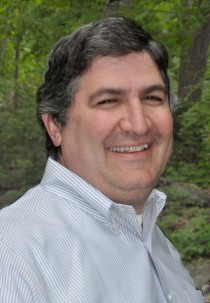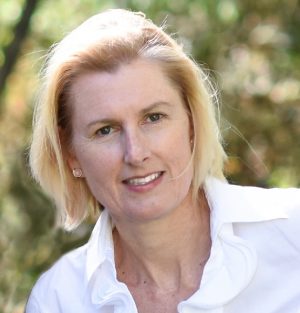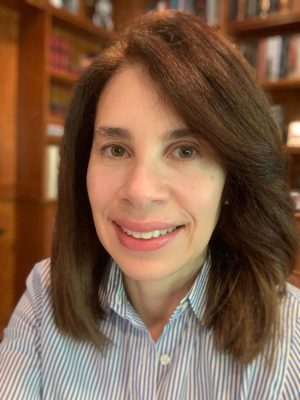Five Candidates Vie for Two Chappaqua Board of Education Seats
In recent years, it’s become commonplace for the Chappaqua Board of Education to have a robust ballot of candidates for its annual election. This year is no different.
A community that takes its public education seriously, sees two incumbents, President Jane Shepardson and three-term Trustee Victoria Tipp, joined by former longtime board member Jeffrey Mester and two first-time candidates, Joshua Shapiro and Deborah Smith.
This year’s election will be conducted entirely by paper ballot, which has been mailed to all registered voters. Ballots must be received by the district clerk’s office no later than Tuesday, June 9 at 5 p.m.
Jeffrey Mester

Mester, a 21-year Chappaqua resident who served on the board for four terms before his defeat last year, said the year away has given him an important perspective. He touted his experience and that he wouldn’t be shy to express a differing opinion.
“The role of a board member is the budget and policy,” said Mester, a self-employed equities and derivatives trader. “While it is critically important for the board to support the administration, it is also critically important for board members to remember that they represent the community, the voters, the taxpayers, not the administration.”
While school officials have done an outstanding job in providing an elite public education to students, there are other areas where the district can improve, he said. The board must consider the majority of its taxpayers who don’t have children in the schools and do far better communicating with all stakeholders.
“The district has some of the highest tax rates, not just in Westchester or New York State, but in the entire country,” Mester said. “Yet, this year, with the economic crisis in full swing during budget development, the board could have acknowledged the no-student households and made further reductions to the tax increase they are proposing this year.”
He also pledged to advocate tirelessly to bring more equitable state funding to the district.
Officials could be more consistent on some issues, he said. For example, Mester said while the district continually advocates for low class size, it refused an appeal this year from parents to hire an additional elementary school teacher.
Mester said he is hopeful that the initiative to review and enhance special education will yield positive results, including having a less adversarial relationship with parents of children with special needs.
Also, he said children who are not academically gifted or who don’t have special needs are sometimes lost in the middle, a situation that needs to be corrected.
Having watched the budget process unfold as a community member for the first time in 13 years, Mester said there was a lack of transparency with respect to getting timely and accurate information.
School districts may have to face difficult decisions with the likelihood of mid-year cuts to state aid. Mester contended that he believes that the district’s revenue projections are “grossly overstated” making it more difficult to make up for any shortfall during the school year.
“I would look for ways to reduce discretionary spending, I would use fund balance and I would avoid the administration and board contemplated mid-year personnel layoffs,” Mester said.
He gives the district excellent grades for its use of distance learning forced by school closures. He credits the administration, which was proactive in preparation and having the proper infrastructure and professional development, and the teachers for helping to execute the plan. Parents and students also did their part to make it successful, despite some understandable hiccups, Mester said.
Mester expressed confidence that the district will also be prepared to resume in-school classes should that be allowed in September.
A supporter of the 2016 $42.5 million bond, Mester applauded the impact of the work, despite some typical delays. However, he said he doesn’t believe that it has been budget neutral.
Mester said he would oppose spending more money to create a single point of entry at Horace Greeley High School. Instead, better use of taxpayer money would be to increase perimeter security and increase the use of technology and mental health services and intervention.
Joshua Shapiro

A first-time candidate, Shapiro has lived in Chappaqua since 1994, and formerly worked at IBM’s Watson Research Center in Yorktown. He has since written for various publications, including The Economist and The New York Times, and has been a consultant to Fortune 500 companies.
Shapiro said as a solutions-oriented person with a varied background he would give the Chappaqua Board of Education a much-needed perspective it may currently lack, along with expertise in technology and the communications skills to help the district and the community.
“In my consulting and research activities, I’m a very curious person, and I’m a very capable problem solver,” Shapiro said. “So I would think that would be relevant to the issues that the board faces.”
The district has had a well-earned reputation for its academic successes, but Shapiro said that success has at times led to complacency, with changes mainly around the margins rather than strategic changes to enable it to move onto the next plateau. The board and the district should do a better job of developing the person as a whole and encourage lifelong learning, not just achieving results, he said.
Skills such as time management, communication and problem-solving are critically important and underappreciated by the school system, Shapiro said.
“You’re not going to stop learning after you’re 18, you’re not going to stop learning after you’re 21; hopefully, you’ll be an active learner for the rest of your life,” Shapiro said.
While having no firsthand knowledge of how distance learning has progressed during the school closure, he said the district had prepared well for its use. Shapiro said it works best provided the students and teachers are well-acquainted with each other. Otherwise, it’s a challenge.
Shapiro said with the strong possibility of state aid cuts during the upcoming fiscal year, one approach the district needs to consider is doing more with less. In the event significant reductions are needed, he would turn to the community for their input.
“I would reach out to the community and ask them, look, you have skin in this game, ask them about efficiencies and opportunities and tell us about them,” Shapiro said.
In trying to obtain a more equitable share of state aid for Westchester and Hudson Valley districts, Shapiro said he would directly appeal to Gov. Andrew Cuomo for his support. The governor has lived in the area and understands the district’s needs and the inequities compared to comparable Long Island districts.
Shapiro was critical of the district’s execution of the 2016 bond issue, which resulted earlier this year in the default of one of the contractors, which added to the project’s delay. Greater scrutiny of the contractor and project might have been beneficial to the district.
“The one thing that I’m least enthralled with on the board is the lack of contract oversight,” he said.
Shapiro is a proponent of having students “learn how to stop,” a practice which is often ignored in high-achieving schools but can provide proper perspective.
“I think it would have consequences which are very positive, including stress, or suicide after school or whatever, substance abuse,” Shapiro explained. “All of these things should moderate some people once they learn how to stop and are not looking for escapes, not looking for compensation.”
Jane Shepardson

It took Shepardson at least halfway through her three-year term to become accustomed to her role as trustee. Even though Shepardson is an attorney, all the intricacies of the job made for a steep learning curve.
Shepardson, the current board president, said continuity of leadership during challenging times is crucial. She also enjoys serving the community, which has motivated her to try to return.
“I really feel a duty to continue serving at this time and help the administration find a way to reopen our schools,” Shepardson said.
She said the Chappaqua School District had a strong plan in place for distance learning when the COVID-19 pandemic forced schools to shutter. It was one of three plans featured on the state Education Department’s from districts across New York, and was tops on the list.
Shepardson credits the administration not only for formulating the plan but in preparing faculty for the challenge through professional development.
Despite that preparation, Shepardson acknowledged that for the district’s younger students there have been challenges, particularly the absence of direct interaction with their peers and teachers.
“I also think it’s very challenging for our most vulnerable students, those with special needs,” she said. “A hands-on approach is the best way and distance learning doesn’t work so well (for them) and there’s not a perfect solution.”
Shepardson said the district is working to make sure its educational services can be accessed by everyone during the crisis.
Schools are facing fiscal uncertainty and Chappaqua is no different. During the budget process, the board decreased the budget by about $1 million in anticipation of cuts of as much as 20 percent in state aid, Shepardson said. That would amount to about $1.9 million.
The administration also came up with three different tiers of reductions, two of which were enacted to reduce the budget.
“I think they’ve been very mindful, very determined to come up with a plan to make reductions that didn’t involve staffing and programming and still have our school district look like our school district,” Shepardson said.
To address the funding inequity for the lower Hudson Valley districts compared to Long Island and New York City, the board must work together with the region’s districts to make changes statewide, she said.
Shepardson said the district remains poised to build on its successes. Its learning centers have been expanded, STEAM centers have been built and AP courses have been made more accessible to allow additional students to achieve.
Enhancements to Chappaqua’s special education program, including the recent hiring of an interim assistant superintendent for pupil personnel services, have been made, Shepardson said. The district wants to ensure that each special needs student receives the appropriate services.
“We’re doing a yearlong deep dive audit into our practices and procedures to come out the other side to make sure we’re properly serving our special education community,” Shepardson said.
Shepardson was not a supporter of the $42.5 million facilities bond in June 2016, because it was too large and she didn’t have the confidence in the prior administration to successfully pull the project together.
Despite that opposition four years ago, Shepardson said she “couldn’t be more pleased with how this bond has worked out,” crediting Superintendent Dr. Christine Ackerman for helping to execute the work.
After delays caused by the default of a contractor and the pandemic, Shepardson said she anticipates the remaining work will be completed before the end of the year.
Introducing the RULER Approach to Social and Emotional Learning has helped the district build on its commitment to ensuring students’ mental and emotional health, she said. Attention to their well-being will be heightened as a result of the COVID-19 crisis.
Deborah Smith

Smith is a 25-year finance industry professional who grew up on an Australian dairy farm and arrived in the United States while working for Morgan Stanley.
Smith said her professional background would enable her to ask the right questions and help the board and the school system find solutions to complicated problems in an unprecedented time.
“I think right now we’re in really challenging economic times and if we want to continue to improve the education for all of our kids, then we must get better at scrutinizing the budget, and we must get better at listening to the community and understanding what’s important to them,” Smith said.
A goal should be to relieve some of the financial pressure on the district’s tax base; she notes that currently about half of the taxpayers don’t have children in the schools. For example, finding additional revenue sources and exploring whether the district can get better value on its contracts should be considered, Smith said.
“I support the proposed budget approved by the current board and hope the community votes for it,” she said. “That said, next year if I am on the board and with additional information, I would ask some tough questions and hopefully use my finance expertise to bring a fresh perspective. It is all about doing more for all of our children with every tax dollar.”
With four children currently attending Chappaqua schools – at least one each at an elementary school, the middle school and high school – Smith has had an up-close look at how remote learning has worked. Depending on who you talk to, there have been mixed reviews, with many of those who have struggled with distance learning being the district’s youngest children and students with disabilities.
The benefits of one-on-one instruction and social and emotional learning are inherently lost through distance learning, Smith said. It’s an obstacle that every district is facing.
“I’m very proud of the education system that we have,” Smith said. “I’m proud of it, and people talk about a new normal, and I don’t want a new normal. I liked our old normal. I like the one that we spent decades improving, spent hundreds of millions of dollars to build. This district and the board and the community worked very hard to build this school system, and I want to work to safely get back to it as quickly as we can.”
Smith praised Chappaqua’s differentiated and project-based learning, and the district’s use of innovation over the years to help it develop programs that are on the forefront of 21st century education. She is fully supportive of continuing.
An area where the board could be stronger is in its informal role connecting with the community at all levels and answering questions and communicating back to the administration. She is also a proponent of using well-targeted surveys to learn from the community the strengths and weaknesses of distance learning as well as broader topics.
“Whether it’s the curriculum or the programs, I think to really act in the best interest of the children and to continue to strengthen programs, we need to have better communication, so we really want to spend more time thinking about how we can build those communication channels,” Smith said.
Smith praised the district’s efforts to understand and address school safety. It is a top priority, and officials should continue to adjust and balance a range of human, physical and electronic security at all schools, including single points of entry and school resource officers.
“This is not an issue and district responsibility that’s going away,” Smith said.
Victoria Tipp

Tipp is vying for a fourth term on the board, having previously served as vice president and president. She currently serves as president of the Westchester-Putnam School Boards Association and is on the steering committee of the Lower Hudson Education Coalition.
Once the COVID-19 pandemic struck forcing the closure of schools, Tipp, an attorney, said she wanted to continue assisting Chappaqua schools navigate the unprecedented impacts on the district, including distance learning, multiple executive orders from the governor and the possibility of mid-year cuts.
Experience and continuity will be important for the Board of Education in the year ahead, she said.
“We are in very destabilizing times and there’s a steep learning curve,” Tipp said. “These are difficult times to be a new board member.”
Should the district be forced to make mid-year cuts, the priority would be to preserve programs and maintain favorable class size, Tipp said. Areas to be considered would be maintenance, administrative expenses, supplies, staff reductions that don’t affect instruction, extracurricular activities and using additional fund balance.
“We would make administrative cuts first,” Tipp said. “We’d have to work through every line item of the budget and if we do have to cut faculty, we would do so in a very careful way so we do not cut programs.”
Tipp lauded the administration and faculty for the district’s distance learning preparation, with significant investments in technology. Its plan was one of three statewide that were highlighted on the Education Department’s website.
With the possibility of remote lessons continuing into the fall, there are improvements that can be made, she said. A key issue is to ensure equity in the learning experience, particularly for the youngest students and the special education population, Tipp added.
“Somehow we need to work with our state Education Department and all educational organizations om how to provide education for all special ed students,” Tipp said. “So this is a challenge we have to work on and research very broadly.”
Upgrading social and emotional curriculum remains a critical issue for educators, she said. Chappaqua has completed training for the highly regarded RULER program, which promotes emotional literacy to help students at all levels.
Working toward a more equitable state funding formula for Hudson Valley schools has been an ongoing effort for Chappaqua and other districts in the region along with local state representatives, Tipp said.
She explained that the formulas such as the Regional Cost Index and calculations on educating English Language Learners are based on data that’s 10 to 20 years old.
“What we need is an accurate formula, an accurate and updated formula that’s based on equity, predictability, stability and transparency, not based on political bargaining,” Tipp said.
While Chappaqua has long had a strong academic reputation, Tipp said there are areas where improvement would be welcome. Those include social and emotional development and mental health, special education, additional training and support for faculty and the continuation of integrating 21st century skills for students into the curriculum.
Tipp said the she’s hopeful that the remainder of the new spaces from the 2016 referendum will be ready at Horace Greeley High School for next school year.
The district has also undertaken a comprehensive security study and a district security plan to ensure the safety of students and staff. Secured vestibules have been introduced at all of Chappaqua’s schools except the high school.
“This is something we continue to work on,” Tipp said. “It’s a work in progress and we continue to work on ways to improve security.”

Martin has more than 30 years experience covering local news in Westchester and Putnam counties, including a frequent focus on zoning and planning issues. He has been editor-in-chief of The Examiner since its inception in 2007. Read more from Martin’s editor-author bio here. Read Martin’s archived work here: https://www.theexaminernews.com/author/martin-wilbur2007/
